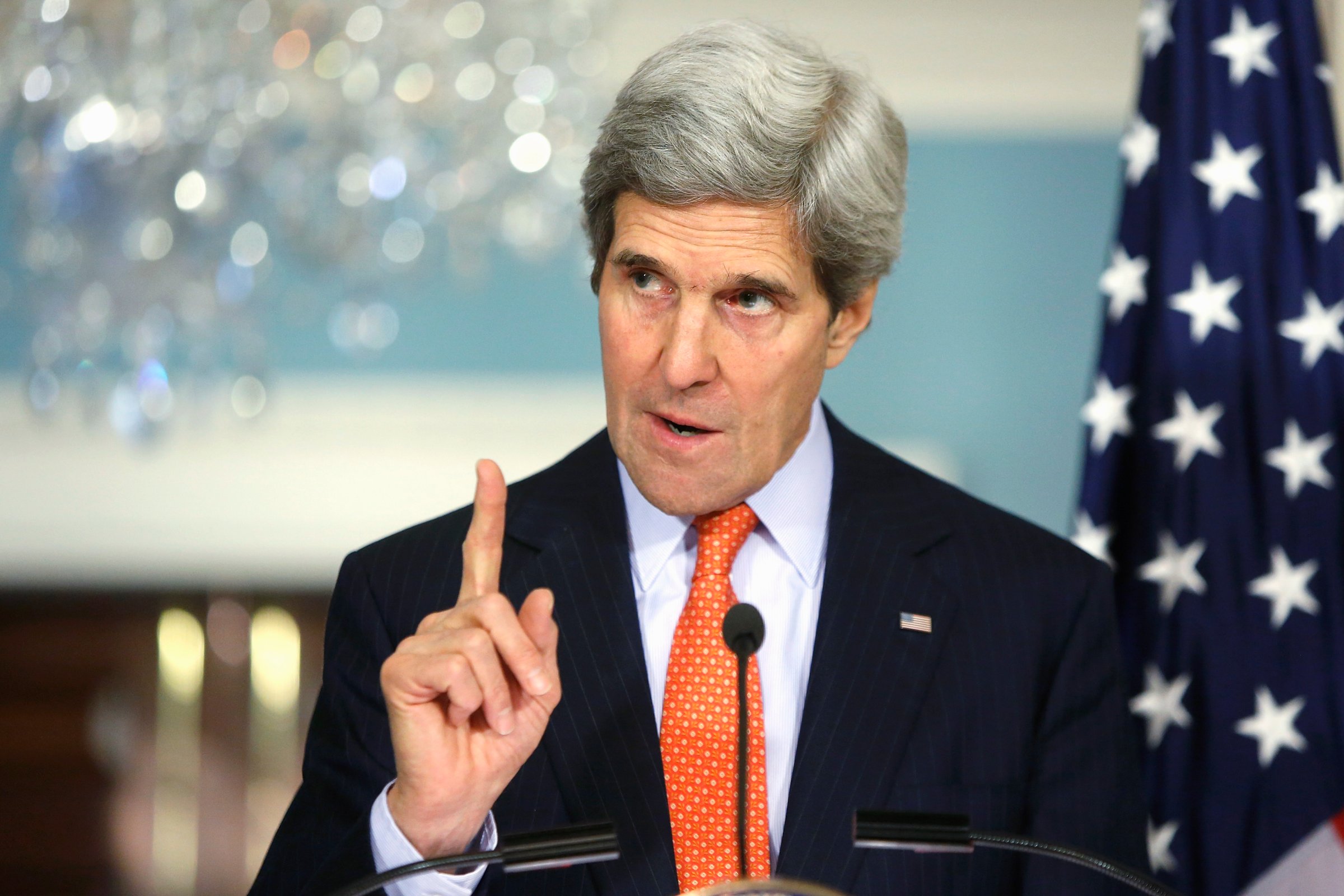
More than a week after Israeli political leaders first lashed out at Secretary of State John Kerry for allegedly warning that the Jewish state could be punished for not advancing the Middle East peace process, Israel’s government is still working to defuse the flap.
“I think he was making a descriptive statement,” Israel’s ambassador to Washington, Ron Dermer, told TIME in an exclusive interview. “I don’t think he was doing it in order to pressure Israel.”
Dermer — a longtime confidante to Israeli Prime Minister Benjamin Netanyahu who is often dubbed “Bibi’s brain” — was referring to Kerry’s remarks at a conference in Munich on February 1, where Kerry warned that an ‘increasing de-legitimization campaign” was growing against Israeli—including “talk of boycotts and other kinds of things.”
Kerry, who has promoted Israeli-Palestinian talks aggressively, argued that Israel needs a deal with its Arab neighbors. “Today’s status quo absolutely, to a certainty, I promise you 100 percent, cannot be maintained,” Kerry said. “It’s not sustainable. It’s illusionary. There’s a momentary prosperity, there’s a momentary peace.”
To some in Israel, Kerry was at best endorsing highly controversial anti-Israel boycott campaigns. At worst, he was leveraging the threat of more economic pain to pressure Israeli action on the slow-moving peace talks. On Facebook, Israel’s conservative Economy Minister, Naftali Bennett wrote: “We expect our friends in the world to stand by our side against anti-Semitic boycott efforts against Israel, and not be their trumpet.” Strategic Affairs Minister Yuval Steinitz called Kerry’s comments “intolerable,” adding: “One cannot expect the State of Israel to participate in negotiations with a gun to its head.”
Dermer is not the first Israeli official to come to Kerry’s defense. Over the weekend, Israeli Foreign Minister Avigdor Lieberman called Kerry “a true friend of Israel.”
But his words are especially noteworthy, given his extremely close ties to Netanyahu. While the Israeli prime minister has not explicitly addressed Kerry’s comments, the day after Kerry spoke, Netanyahu said that “[a]ttempts to impose a boycott on the state of Israel are immoral and unjust.” That comment that was interpreted widely as a rebuke to Kerry.
Dermer, who arrived in Washington this past December, says Kerry’s remarks clearly referred to already-existing pressure on Israel. The country is the target of growing boycott and divestment campaigns, including ones by major European pension funds and others on U.S. college campuses, driven by moral opposition to Israel’s occupation of Palestinian territories.
Some activists are specifically targeting businesses with operations in the West Bank, including fizzy-water maker SodaStream, whose celebrity endorser Scarlett Johansson has defended the company against boycott calls.
“Secretary Kerry is opposed to the boycotting of Israel, something he made clear again this week. President Obama has also been crystal clear about that,” Dermer told TIME.
Last week, a State Department spokeswoman issued a statement affirming Kerry’s “proud record of over three decades of steadfast support for Israel’s security and well-being, including staunch opposition to boycotts.” And several days ago national security advisor Susan Rice defended Kerry in a series of pointed tweets, including one calling criticism of Kerry “totally unfounded and unacceptable.”
More Must-Reads from TIME
- Donald Trump Is TIME's 2024 Person of the Year
- Why We Chose Trump as Person of the Year
- Is Intermittent Fasting Good or Bad for You?
- The 100 Must-Read Books of 2024
- The 20 Best Christmas TV Episodes
- Column: If Optimism Feels Ridiculous Now, Try Hope
- The Future of Climate Action Is Trade Policy
- Merle Bombardieri Is Helping People Make the Baby Decision
Contact us at letters@time.com